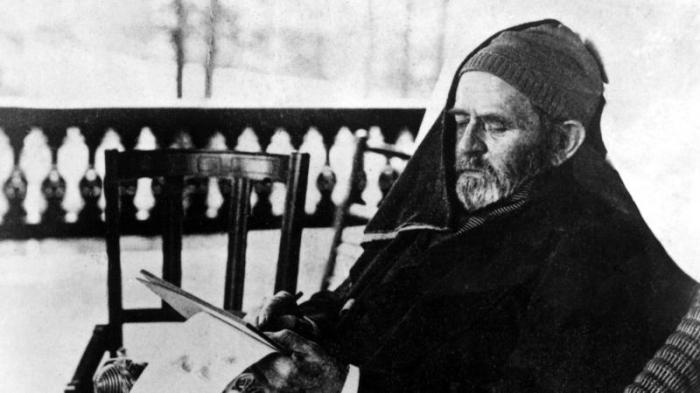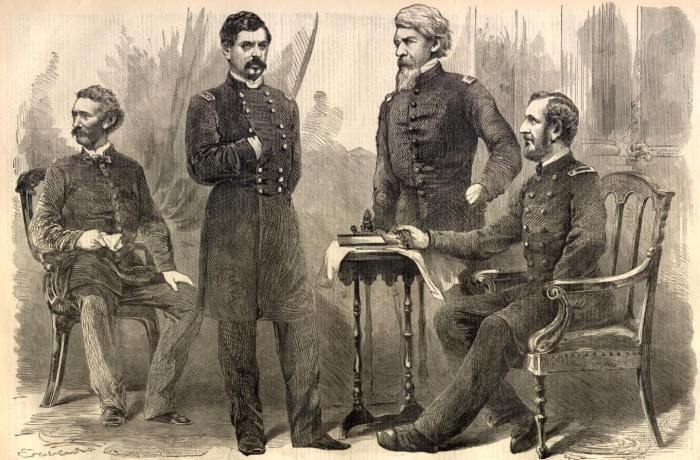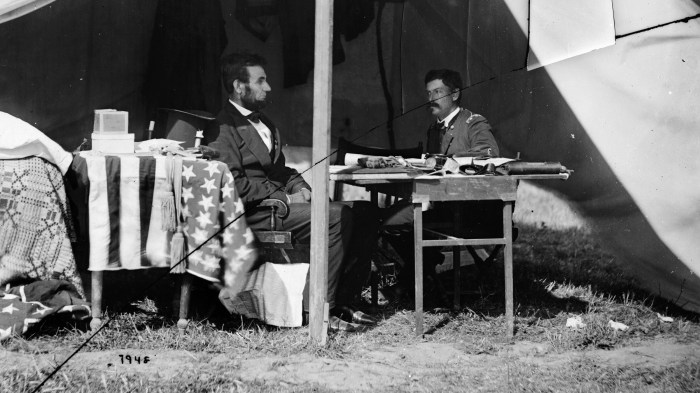George McClellan and Ulysses S. Grant, two iconic generals of the American Civil War, exhibited starkly contrasting military strategies and leadership styles that profoundly influenced the course of the conflict. McClellan, a cautious and meticulous planner, favored defensive tactics, while Grant, an aggressive and determined commander, embraced bold offensives.
This essay delves into the complexities of their approaches, examining how they shaped their respective campaigns and ultimately contributed to the Union victory.
Civil War Strategies and Leadership Styles

The American Civil War was a complex conflict that saw the clash of two distinct military strategies and leadership styles. George McClellan, the Union general known for his cautious and methodical approach, stands in contrast to Ulysses S. Grant, the Union general who favored aggressive and relentless campaigns.
McClellan’s strategy was characterized by a focus on controlling key terrain and building up his army’s strength before engaging in battle. He believed in the importance of maintaining supply lines and ensuring the well-being of his troops. McClellan’s leadership style was characterized by his meticulous planning and attention to detail, which often led to delays in his campaigns.
Grant’s Military Strategy
In contrast, Grant’s strategy was more aggressive and focused on constant pressure on the enemy. He believed in the importance of attacking the enemy’s weaknesses and relentlessly pursuing them until they were defeated. Grant’s leadership style was characterized by his determination and willingness to take risks, which often led to decisive victories.
Impact of Differing Approaches
The differing approaches of McClellan and Grant had a significant impact on the outcome of the war. McClellan’s cautious strategy often resulted in missed opportunities and prolonged the conflict, while Grant’s aggressive approach led to decisive victories that ultimately brought about the Union’s victory.
The Battle of Antietam

The Battle of Antietam, fought on September 17, 1862, was a pivotal battle in the American Civil War. It was the bloodiest single-day battle in American history, with over 23,000 casualties. The battle was fought between the Union Army of the Potomac, commanded by General George McClellan, and the Confederate Army of Northern Virginia, commanded by General Robert E.
Lee.
McClellan’s plan was to attack Lee’s army from the west, while General Ambrose Burnside’s IX Corps attacked from the north. However, McClellan’s attack was delayed, and Burnside’s attack was unsuccessful. Lee took advantage of the delay to reinforce his position, and the battle became a bloody stalemate.
The Battle of Antietam was a tactical draw, but it had a significant impact on the course of the war. It was the first major battle fought on Union soil, and it convinced President Abraham Lincoln to issue the Emancipation Proclamation, which freed slaves in Confederate-held territory.
The battle also had a significant impact on the reputations of McClellan and Grant. McClellan was criticized for his cautious and indecisive leadership, while Grant was praised for his aggressive and successful attacks.
McClellan’s Role in the Battle
McClellan was a cautious and conservative general. He was slow to make decisions, and he often hesitated to attack the enemy. At Antietam, McClellan’s delays allowed Lee to reinforce his position, and it contributed to the bloody stalemate.
Grant’s Role in the Battle
Grant was a more aggressive and decisive general than McClellan. He was willing to take risks, and he was not afraid to attack the enemy. At Antietam, Grant’s attacks were some of the most successful of the day. He helped to break the Confederate line, and he contributed to the Union victory.
Aftermath of the Battle
The Battle of Antietam was a bloody and costly battle, but it was a turning point in the Civil War. It convinced President Lincoln to issue the Emancipation Proclamation, and it helped to turn the tide of the war in favor of the Union.
The battle also had a significant impact on the reputations of McClellan and Grant. McClellan was criticized for his cautious and indecisive leadership, while Grant was praised for his aggressive and successful attacks. Grant’s reputation was further enhanced by his victory at Vicksburg in 1863, and he went on to become the Commanding General of the Union Army.
The Vicksburg Campaign

The Vicksburg Campaign was a series of military operations launched by Union forces under the command of Ulysses S. Grant from December 1862 to July 4, 1863, during the American Civil War. The campaign aimed to capture the strategically important city of Vicksburg, Mississippi, which controlled access to the Mississippi River and divided the Confederate states.
Grant’s Role in the Vicksburg Campaign
Grant played a crucial role in the success of the Vicksburg Campaign. He devised a bold and innovative plan to attack Vicksburg from multiple directions, cutting off its supply lines and forcing its surrender. Grant’s leadership and determination inspired his troops and kept them focused on the mission, despite facing numerous challenges and setbacks.
Strategic Importance of Vicksburg
Vicksburg was a vital strategic location for both the Union and the Confederacy. Controlling the city would give the Union control over the Mississippi River, effectively splitting the Confederacy in two and cutting off its access to supplies and reinforcements from the west.
Conversely, losing Vicksburg would be a major blow to the Confederacy, as it would severely limit their ability to transport troops and supplies.
Impact on Grant’s Reputation
The Vicksburg Campaign was a major turning point in the war and significantly boosted Grant’s reputation. His victory at Vicksburg earned him national recognition and established him as one of the most capable Union generals. The campaign also demonstrated Grant’s strategic acumen and his willingness to take risks, which would later serve him well in his role as commander of all Union armies.
Implications for the Union Victory
The capture of Vicksburg had a profound impact on the Union victory in the Civil War. It gave the Union control over the Mississippi River, enabling them to divide the Confederacy and cut off its access to vital resources. The victory also boosted Union morale and weakened Confederate resolve, setting the stage for the eventual Union victory.
The Overland Campaign: George Mcclellan And Ulysses S. Grant
The Overland Campaign was a series of battles fought in Virginia from May to June 1864, as part of the American Civil War. Union General Ulysses S. Grant led the Army of the Potomac against Confederate General Robert E. Lee’s Army of Northern Virginia.
The campaign was characterized by heavy casualties on both sides, and it is considered one of the most brutal campaigns of the war. Grant’s goal was to destroy Lee’s army and capture the Confederate capital of Richmond, Virginia. Lee’s goal was to defend Richmond and prevent Grant from advancing further into Virginia.
Key Battles
The Overland Campaign included several key battles, including the Battle of the Wilderness, the Battle of Spotsylvania Court House, the Battle of Cold Harbor, and the Battle of Petersburg.
- Battle of the Wilderness:The Battle of the Wilderness was fought from May 5-7, 1864, and was the first major battle of the Overland Campaign. The battle was fought in a dense forest, and the fighting was fierce and bloody. Grant lost over 17,000 men in the battle, while Lee lost over 11,000.
- Battle of Spotsylvania Court House:The Battle of Spotsylvania Court House was fought from May 8-19, 1864, and was the second major battle of the Overland Campaign. The battle was fought in a series of trenches, and the fighting was again fierce and bloody. Grant lost over 18,000 men in the battle, while Lee lost over 12,000.
- Battle of Cold Harbor:The Battle of Cold Harbor was fought from June 3-12, 1864, and was the third major battle of the Overland Campaign. The battle was fought in a series of frontal assaults against Confederate entrenchments, and the Union suffered heavy casualties.
Grant lost over 12,000 men in the battle, while Lee lost over 5,000.
- Battle of Petersburg:The Battle of Petersburg was fought from June 15, 1864, to April 2, 1865, and was the fourth and final major battle of the Overland Campaign. The battle was fought around the city of Petersburg, Virginia, and the fighting was again fierce and bloody.
Grant lost over 42,000 men in the battle, while Lee lost over 28,000.
Challenges Faced by Grant
Grant faced a number of challenges during the Overland Campaign, including:
- Confederate resistance:Lee’s army was well-entrenched and determined to defend Richmond. Grant’s army was outnumbered and outmaneuvered on several occasions.
- Difficult terrain:The terrain in Virginia was difficult to navigate, and the weather was often hot and humid. This made it difficult for Grant’s army to move and supply itself.
- Political pressure:Grant was under pressure from President Lincoln to win a decisive victory. This pressure led Grant to make some risky decisions that resulted in heavy casualties.
Impact of the Campaign
The Overland Campaign was a costly victory for the Union. Grant lost over 55,000 men in the campaign, while Lee lost over 32,000. However, the campaign achieved its objective of destroying Lee’s army and capturing Richmond. The campaign also paved the way for the Union victory in the Civil War.
Comparison of Legacies
George McClellan and Ulysses S. Grant were two of the most important Union generals in the Civil War. Both men had their strengths and weaknesses, but they both played a vital role in the Union victory.McClellan was a brilliant organizer and administrator.
He was also a cautious general who was often reluctant to engage the enemy. Grant, on the other hand, was a more aggressive general who was willing to take risks. He was also a master of logistics and supply.McClellan’s legacy is mixed.
He is often criticized for his caution and his failure to win a decisive victory at the Battle of Antietam. However, he also played a vital role in organizing the Union army and in training its soldiers.Grant’s legacy is more positive.
He is generally regarded as one of the greatest generals in American history. He won a number of important victories, including the Battle of Vicksburg and the Battle of Appomattox Court House. He also played a key role in the development of modern military strategy.Both
McClellan and Grant made significant contributions to the Union victory in the Civil War. McClellan was a brilliant organizer and administrator, while Grant was a more aggressive general who was willing to take risks. Both men played a vital role in the Union victory and in shaping the war.
Their respective roles in shaping the war
McClellan’s caution and his failure to win a decisive victory at the Battle of Antietam allowed the Confederate army to remain in the field for much longer than it should have. This prolonged the war and caused the deaths of thousands of soldiers.Grant’s
aggressive generalship and his willingness to take risks helped to bring the war to a close. He won a number of important victories, including the Battle of Vicksburg and the Battle of Appomattox Court House. These victories helped to break the back of the Confederate army and led to the Union victory.
How their reputations have evolved over time and their impact on American history, George mcclellan and ulysses s. grant
McClellan’s reputation has declined over time. He is often criticized for his caution and his failure to win a decisive victory at the Battle of Antietam. Grant’s reputation, on the other hand, has improved over time. He is now generally regarded as one of the greatest generals in American history.Both
McClellan and Grant had a significant impact on American history. McClellan’s caution and his failure to win a decisive victory at the Battle of Antietam prolonged the war and caused the deaths of thousands of soldiers. Grant’s aggressive generalship and his willingness to take risks helped to bring the war to a close.
These victories helped to break the back of the Confederate army and led to the Union victory.
FAQ Compilation
What were the key differences between McClellan’s and Grant’s military strategies?
McClellan favored defensive tactics and meticulous planning, while Grant embraced aggressive offensives and bold maneuvers.
How did their leadership styles influence their respective campaigns?
McClellan’s caution led to missed opportunities, while Grant’s determination and willingness to take risks resulted in decisive victories.
What was the impact of McClellan’s and Grant’s contrasting approaches on the outcome of the war?
Grant’s aggressive tactics and strategic brilliance ultimately contributed more significantly to the Union victory than McClellan’s cautious approach.